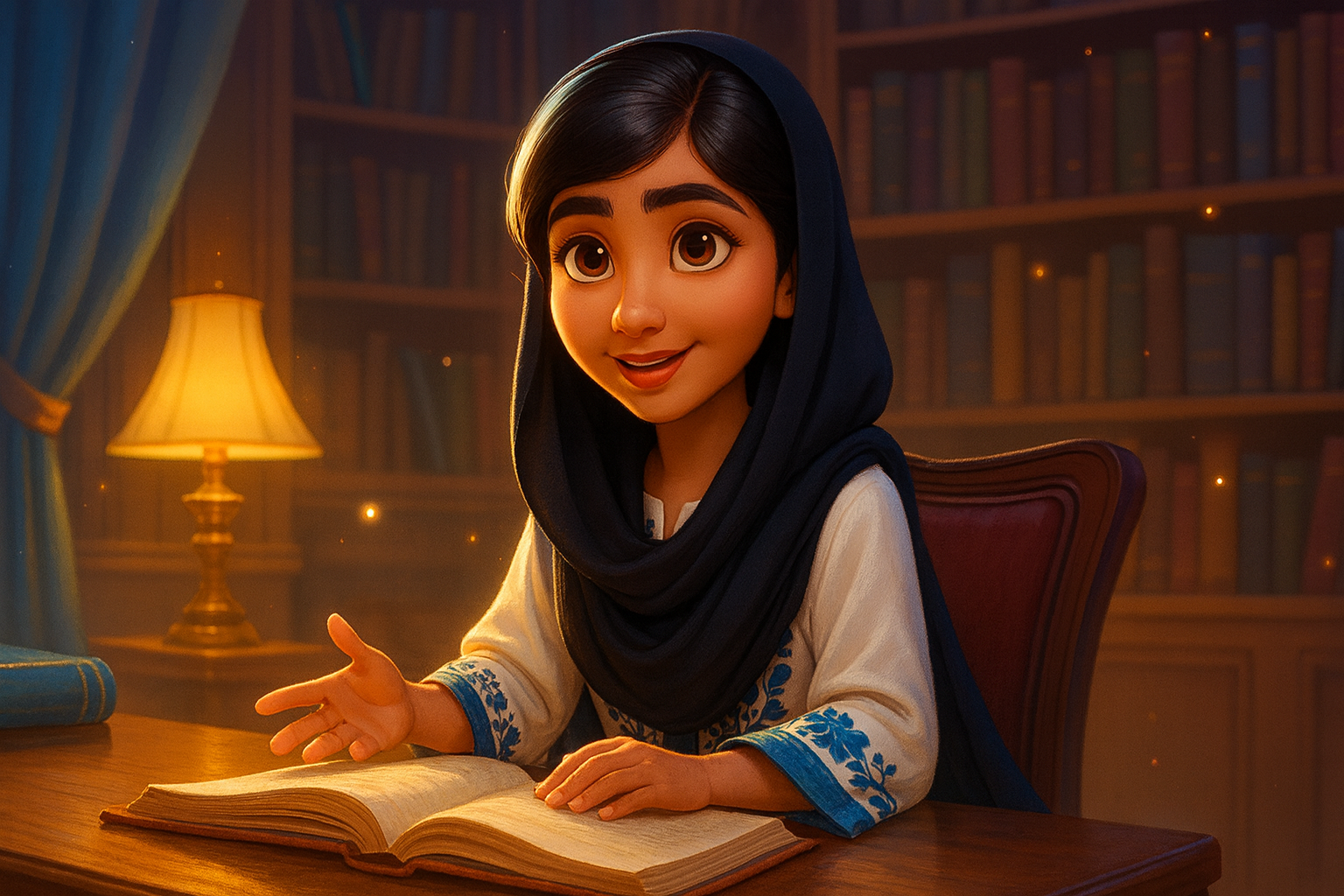In the lush Swat Valley of Pakistan, where emerald mountains meet mist and rivers, a girl was born on July 12, 1997.
Her father named her Malala — after Malalai of Maiwand, a Pashtun heroine who fell in battle with a cry for freedom.
Malala was born to a humble family in Mingora. Her father, Ziauddin Yousafzai, ran a school and believed passionately in education — not just for boys, but for girls too.
Malala grew up surrounded by books, poetry, and the sound of her father’s voice reciting verses of resistance.
“I tell my story not because it is unique, but because it is not.”
When School Became a Crime
In 2007, the Taliban took control of Swat Valley. They banned television, music, and eventually — girls’ education.
Schools were burned, teachers threatened, students terrified.
Malala, just eleven, watched her world shrink. One day she asked her father:
“Why should I be afraid to go to school?”
He replied, “Speak, Malala. Your voice is your power.”
And she did. She began writing secretly for the BBC under a pseudonym, Gul Makai, sharing the truth of life under the Taliban.
Her words traveled across the world — a child’s diary that held the courage of a nation.
The Attack
Her activism did not go unnoticed. On October 9, 2012, as Malala returned from school, a Taliban gunman stopped her bus.
He asked, “Who is Malala?” and then shot her in the head.
The world held its breath. Malala was airlifted to the UK. She survived.
She awoke not afraid — but transformed.
“They thought the bullets would silence us, but they failed.”
A Voice for the Voiceless
After months of recovery, Malala stood once again — not with vengeance, but with vision.
She co-founded the Malala Fund, dedicated to fighting for girls’ education around the globe.
At 16 years old, she addressed the United Nations in New York:
“One child, one teacher, one book, one pen can change the world.”
Her voice trembled — not from fear, but from purpose.
The Youngest Nobel Laureate
In 2014, at age 17, Malala Yousafzai became the youngest Nobel Peace Prize laureate in history. She did not accept the award alone.
She accepted it “on behalf of all the forgotten children who want education.”
She continued her studies while continuing her activism, proving that she was not just a symbol — she was a student, a sister, a girl who still believed in the power of knowledge.
Beyond Survival — A Mission
From Nigeria to Syria to Afghanistan, Malala has stood beside girls denied basic rights.
She graduated from Oxford University in 2020, studying Philosophy, Politics, and Economics — a journey that began in a small classroom in Swat.
“I raise my voice not so I can shout, but so that those without a voice can be heard.”
The Legacy in Motion
Malala is not done. She is still only at the beginning of her story. She represents a truth that terrifies oppressors: education is freedom.
She is not just a survivor of violence, but a builder of hope. Not just a girl from Swat, but a daughter of the world.
“We realize the importance of our voices only when we are silenced.”
Malala’s journey is a story of survival, resilience, and the power of education. She reminds us that no matter how dire the circumstances, standing up for what is right can lead to global change.
Her courage and unwavering dedication to education have made her one of the most influential young leaders of the 21st century.
“I don’t want to be remembered as the girl who was shot. I want to be remembered as the girl who stood up.”
“I speak not for myself but for those without voice… those who have fought for their rights… their right to live in peace, their right to be treated with dignity, their right to equality of opportunity, their right to be educated.”
“With guns you can kill terrorists, with education you can kill terrorism.”
“Outside his office my father had a framed copy of a letter written by Abraham Lincoln to his son’s teacher, translated into Pashto. It is a very beautiful letter, full of good advice.
“Teach him, if you can, the wonder of books…But also give him quiet time to ponder the eternal mystery of birds in the sky, bees in the sun, and the flowers on a green hillside,” it says. “Teach him it is far more honorable to fail than to cheat.”
